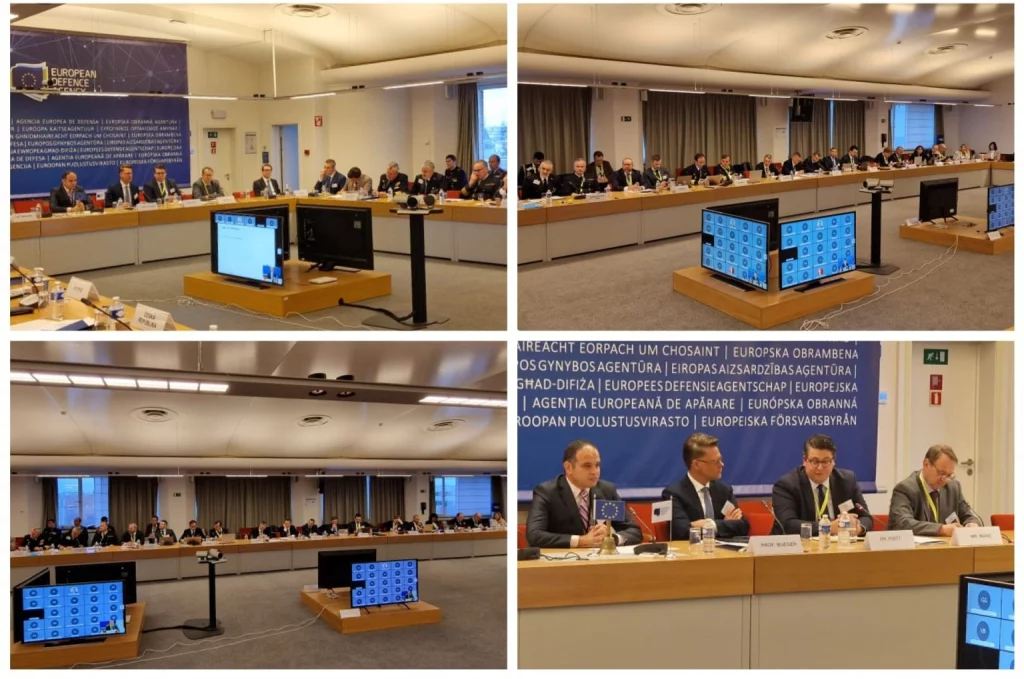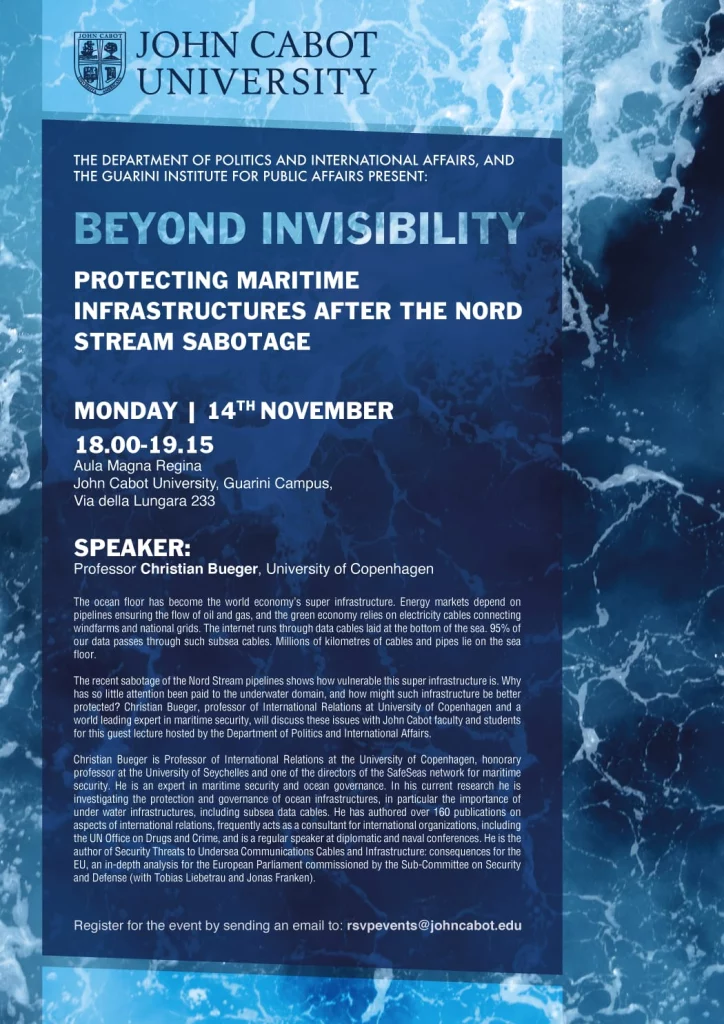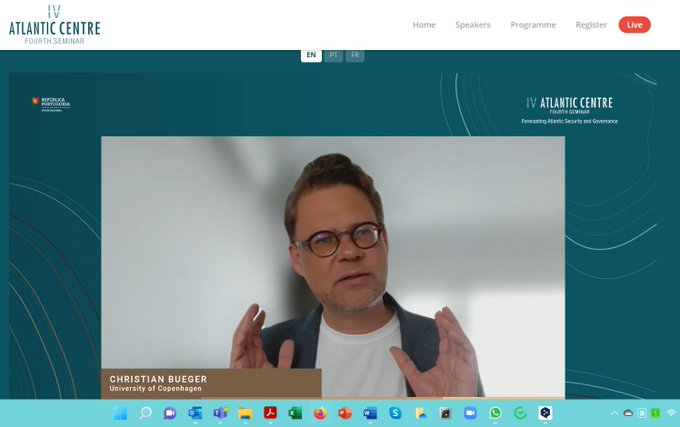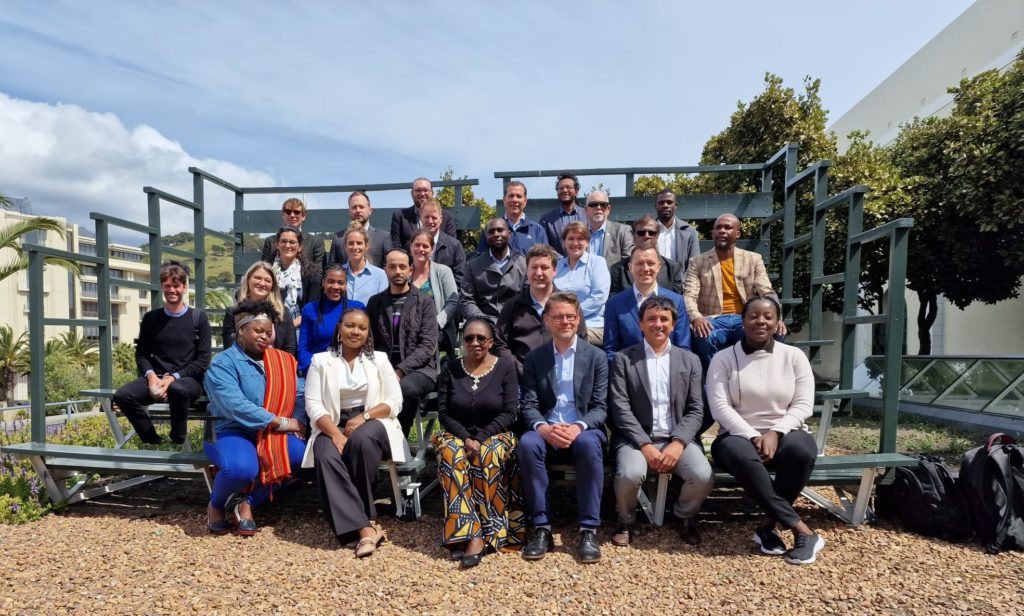For the last months I have been based at the University of Malta, that has kindly hosted me as a visiting fellow. In December and January I will be based in Mauritius. I will mainly look into the current maritime security situation in the Western Indian Ocean, and continue the research on the 2020 Wakashio oil spill.
Category Archives: News
Forum on European Maritime Domain Awareness
Maritime Domain Awareness, in short MDA, is one of the most important solutions in the maritime security tool box. It centers on the idea that surveillance, data collection and information sharing can improve the response to maritime security incidents, deter threats, and identify suspicious behavior. The EU operates two related MDA platforms: The Common Information Sharing (CISE) platform focuses on the civil domain and is operated by the European Marine Safety Agency (EMSA); the Maritime Surveillance (MARSUR) platform focuses on military purposes and is developed by the European Defense Agency (EDA).

I had the pleasure to participate in a symposium organized by the EDA on November, 18th in Brussels. The event evaluated the state of MDA in Europe and how MARSUR could be improved. At the event, I introduced my research on MDA and discussed what barriers to information sharing must be overcome.
Participation in SHADE Med
On the 15th and 16th of November, I am participating in the Shared Awareness and Deconfliction in the Mediterranean (SHADE Med) meeting. SHADE Med is an informal naval coordination mechanism that was created in response to the challenges that irregular migration posed in the region. It draws on the role model of a mechanism that was created for the purpose of counter-piracy in the Western Indian Ocean.
The focus of the meeting is on “New challenges to regional security in the Mediterranean”. In addition to operational updates on the operations IRINI (EU), SEA GUARDIAN (NATO) and MEDITERRANEO SICURO (Italy), the are a number of strategic themes that will be discussed. The first day focuses on the implications of the EU’s new Strategic Compass, published in early 2022. On the second day the situation in Libya, new challenges to maritime operations, and the interdependence between food, energy and climate change will be discussed.
I will be contributing to the theme on new challenges, introducing our research on critical maritime infrastructure protection and what the implications for maritime operations in the region are.
Searching for a new vision of ocean politics – lecture at University of Malta
The oceans have gained much world political attention. Yet, ocean debates continue to be structured by three visions – the oceans as closed, free or global commons. In a talk I will be giving at the Department of International Relations, University of Malta, I argue why these visions are limited. We have to ponder about alternatives. I outlines how thinking with ‘infrastructures’ can help us to go beyond territory, freedom, state-centrism and formal law, enables paying attention to technology and economics, and capturing global ocean politics in the age of the anthropocene.
The talk titled Ocean Infrastructures – Searching for a new vision for global ocean politics, takes place on November, 23rd (12.00-13.30), Boardroom 212, Old Humanities Building, Department of International Relations, Faculty of Arts.
Lecture in Rome on critical maritime infrastructure protection
On Monday, November 14, 2022, I am giving a talk at John Cabot University, titled Beyond invisibility: Protecting maritime infrastructures after the Nord Stream Sabotage.
In the talk I will be summarizing our recent research on critical maritime infrastructures, and the consequences of the attacks on the Nord Stream 1 and 2 pipelines

What is the right mix of interventions for maritime security in the global South?
This was one of the questions that was discussed at a webinar on the situation in the Gulf of Guinea on 21.10. At the seminar organized by the Portuguese Atlantic Center in collaboration with the Gulf of Guinea Maritime Institute, the first key issue was what the state of the maritime security architecture currently is. Solomon Agada from the Nigerian Navy, and Cilles Ghehab from the GoGIN project addressed the substantial progress under way.

The debate then turned to more general questions about interventions and capacity building. Emanuel Bell Bell from the ICC Yaounde argued that more local ownership is needed and dependency needs to be reduced. In my own contribution I drew on the lessons from our book on capacity building and the research done in the frame of the AMARIS project. I argued for the importance of recognizing the political dimensions of capacity building – local, regional, and geopolitical – and turning to long term funding and maintenance questions. I also highlighted the importance of appreciating failures in capacity building to learn, not the least given much of current projects are experimental in nature.
Workshop on Ocean Infrastructures – Launch of our new research group
Our new research group on Ocean Infrastructures was launched with a workshop exploring how marine activities are shaped by various infrastructures on 13th and 14th of October.
How do infrastructures enable and restrict oceanic practices and produce new forms of agency, spatiality and materiality in the oceans? That was the key question we addressed with 20 scholars from different disciplines, including geography, international relations, law and science and technology studies. The goal of the workshop was to explore the variety of ocean infrastructures, but also the question in how far the conceptual vocabulary of infrastructures can shed new light on how the oceans are governed today.
We explored infrastructures reaching from shipping to under water tunnels and choke points, but also in how far international institutions, treaties and global ocean narratives can be conceptualized as infrastructures.
Part of the workshop was also an excursion to the maritime history of Denmark with a visit to the naval facilities at Holmen, and a public roundtable that took the current interest on critical infrastructure protection as its focus.
The workshop not only marked the launch of our research group funded by the Velux Foundation, but also kickstarted our work on an edited volume on ocean infrastructures which we hope to complete by the end of 2023.
Consequences of the Nord Stream sabotage
The sabotage of the Nord Stream pipelines has drawn unprecedented attention to the under water domain and the criticality of subsea infrastructures. Indeed, the world economy depends on the ocean floor as never before in history. It is pipelines, electricity cables, and data cables, that connect the global economy.
Drawing on the research conducted as part of our ocean infrastructure research group, in particular our work on subsea data cables, I have been commenting in several news outlets on this issue, including the Wall Street Journal, Der Spiegel, and others. See the overview here.
An independent commentary on the consequences for the EU was published by The Conversation. A commentary co-authored with Tobias Liebetrau published in The Loop argues that we have to change our perspective of the under water space more generally.
The European Parliament discussed our report on October 6th and announced that our recommendations will inform an action plan on the protection of underwater infrastructures. In response, I published a commentary in EUObserver arguing that the action plan of the commission is not sufficient.
Visiting Fellow in Malta
From October to November 2022, I will be a visiting fellow at the Department of International Relations at the University of Malta. During my stay, I am working on two book projects: An introduction to maritime security (together with Tim Edmunds), and a research monograph on the Contact Group on Piracy off the Coast of Somalia and how it steered the fight against piracy.
I am also meeting with the broad range of institutions that focus on ocean governance in the country.
The strategic importance of subsea data cables for the African continent
Continuing our discussion of the strategic importance of subsea data cables, on September 22 and 23, 2022 we held an event with a focus on African challenges and capacity building. The expert workshop was organized in cooperation with the Atlantic Center, University of Cape Town, the EU’s Cyber for Development Initiative and Cardiff University.

The event featured speakers from the African industry, regional organizations such as NEPAD, UNIDIR, or the Indian Ocean Commission, as well as from South Africa, Botswana and Mozambique. Two of the key themes of the discussion were: 1) the digital dependency of Southern Africa implied by the lack of data centers as well as the weakness of intra-African connections; 2) the relationships and mutual responsibilities between states, local and global industry in building, maintaining and repairing digital infrastructures. Part of the event was an excursion to the cable repair ship that covers the East and West coast of Southern Africa, sponsored by Orange Maritime.
The event is part of our global dialogue on subsea data cables initiated through the help of the Danish Ministry of Education (DACANE) and the Velux Foundation (Ocean Infrastructure research group).